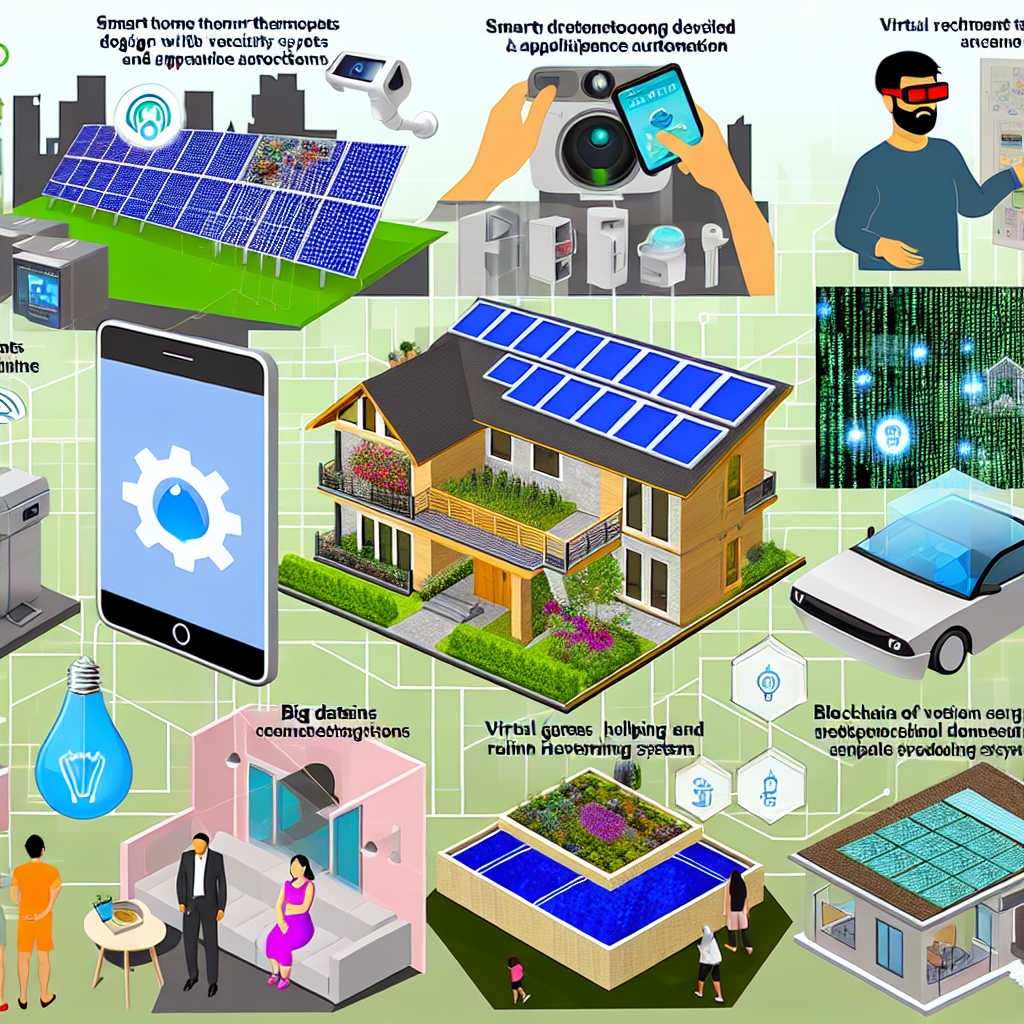
The real estate industry has undergone significant changes and innovations in the past decade. Advancements in technology, changing consumer preferences, and the need for sustainability have all contributed to the transformation of the real estate sector. In this article, we will explore some of the key innovations that have shaped the industry in the past 10 years.
1. Technology-driven Solutions
Technology has played a crucial role in revolutionizing the real estate industry. From online property listings to virtual reality tours, technology has made it easier for buyers, sellers, and agents to navigate the market. Here are some notable technological innovations:
- Online Property Listings: The rise of online platforms such as Zillow and Realtor.com has made it easier for buyers to search for properties. These platforms provide detailed information about properties, including photos, floor plans, and neighborhood data.
- Virtual Reality (VR) Tours: VR technology has transformed the way properties are showcased. Buyers can now take virtual tours of properties from the comfort of their homes, saving time and effort.
- Smart Home Technology: The integration of smart home technology has made homes more convenient and energy-efficient. From smart thermostats to automated lighting systems, these innovations have become increasingly popular among homeowners.
2. Rise of Co-working Spaces
The rise of co-working spaces has been one of the most significant trends in the real estate industry in the past decade. Co-working spaces provide flexible workspaces for individuals and businesses, offering amenities such as high-speed internet, meeting rooms, and communal areas. This trend has been driven by the changing nature of work and the rise of the gig economy. According to a report by JLL, the global co-working market has grown at an average annual rate of 23% since 2010.
Co-working spaces have not only provided a solution for freelancers and startups but have also attracted larger corporations. Companies like WeWork and Regus have expanded their presence globally, offering flexible office solutions to businesses of all sizes. This trend has disrupted the traditional office leasing market and has forced landlords to adapt to the changing demands of tenants.
3. Sustainable Building Practices
The past decade has seen a growing emphasis on sustainability in the real estate industry. Developers and architects are increasingly incorporating sustainable building practices to reduce the environmental impact of buildings. Some notable innovations in sustainable building include:
- Green Building Certifications: Certifications such as LEED (Leadership in Energy and Environmental Design) have become more prevalent, encouraging developers to design and construct energy-efficient buildings.
- Renewable Energy Integration: The integration of renewable energy sources, such as solar panels and wind turbines, has become more common in new construction projects.
- Energy-Efficient Materials: The use of energy-efficient materials, such as insulated windows and eco-friendly insulation, has become standard practice in many new buildings.
These sustainable building practices not only benefit the environment but also provide cost savings for building owners and occupants in the long run. According to a study by the World Green Building Council, green buildings can reduce energy consumption by up to 30% and water consumption by up to 35%.
4. Real Estate Crowdfunding
Real estate crowdfunding has emerged as an alternative financing option for both developers and investors. Crowdfunding platforms allow developers to raise capital for their projects by pooling funds from multiple investors. This innovation has democratized real estate investing, allowing individuals to invest in properties with lower capital requirements.
Real estate crowdfunding has also provided an opportunity for investors to diversify their portfolios. Instead of investing in a single property, investors can now spread their investments across multiple projects, reducing risk. According to a report by Massolution, the global real estate crowdfunding market was valued at $3.5 billion in 2019 and is expected to reach $9.5 billion by 2025.
5. Data Analytics and Artificial Intelligence
Data analytics and artificial intelligence (AI) have become increasingly important in the real estate industry. These technologies enable real estate professionals to make data-driven decisions and gain insights into market trends. Here are some ways data analytics and AI are being used in the industry:
- Market Analysis: Data analytics tools can analyze large volumes of data to identify market trends, predict property values, and assess investment opportunities.
- Property Management: AI-powered property management platforms can automate tasks such as rent collection, maintenance requests, and lease renewals, streamlining operations for landlords and property managers.
- Customer Relationship Management (CRM): CRM systems equipped with AI capabilities can help real estate agents personalize their interactions with clients, improving customer satisfaction and retention.
These technologies have the potential to transform the way real estate professionals operate, making processes more efficient and improving the overall customer experience.
Summary
The real estate industry has experienced significant innovation in the past 10 years. Technology-driven solutions, such as online property listings and virtual reality tours, have made it easier for buyers, sellers, and agents to navigate the market. The rise of co-working spaces has disrupted the traditional office leasing market, providing flexible workspaces for individuals and businesses. Sustainable building practices have become more prevalent, reducing the environmental impact of buildings and providing cost savings for owners and occupants. Real estate crowdfunding has democratized investing, allowing individuals to invest in properties with lower capital requirements. Data analytics and AI have enabled real estate professionals to make data-driven decisions and gain insights into market trends.
As we look to the future, it is clear that innovation will continue to shape the real estate industry. Advancements in technology, changing consumer preferences, and the need for sustainability will drive further transformation in the years to come.








